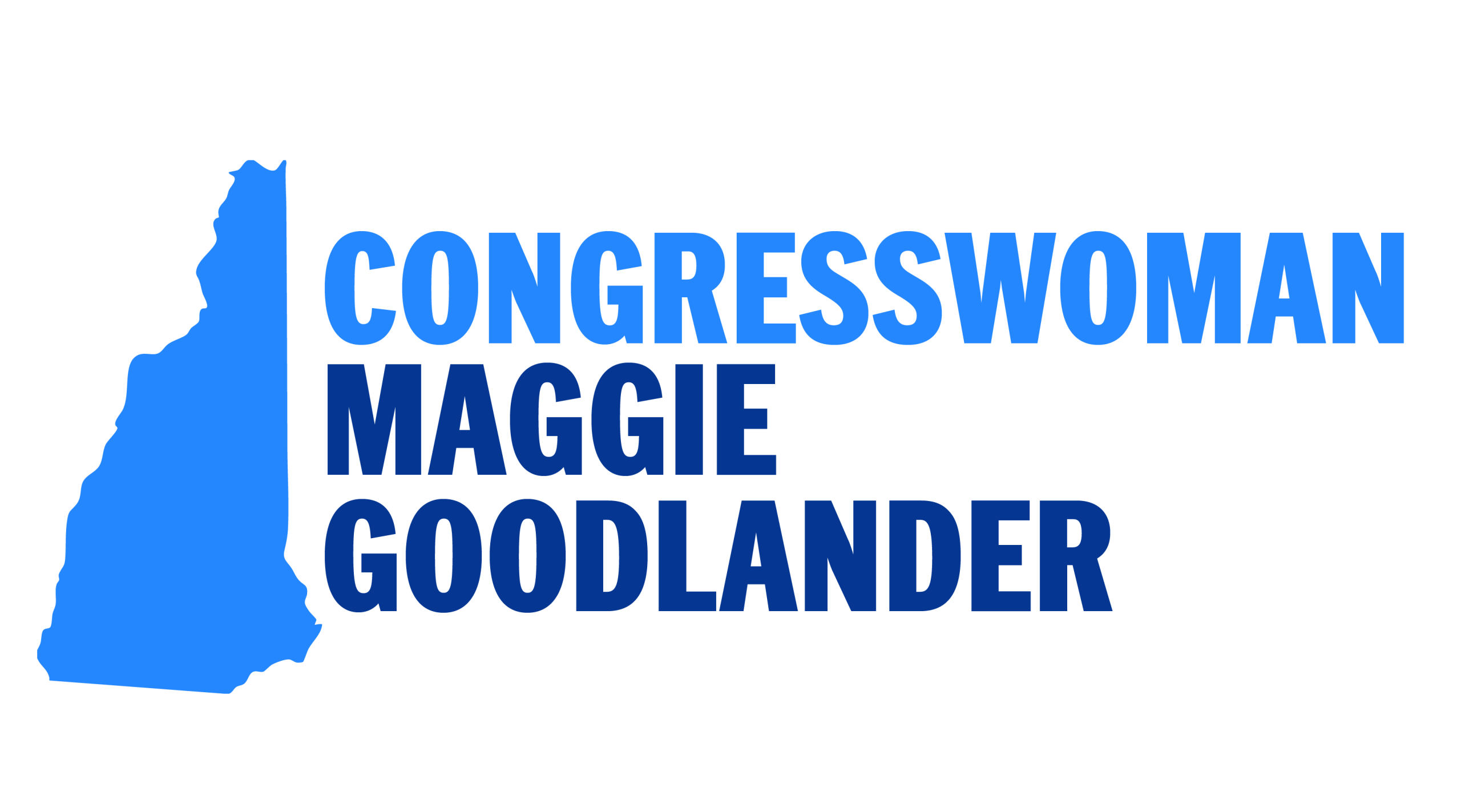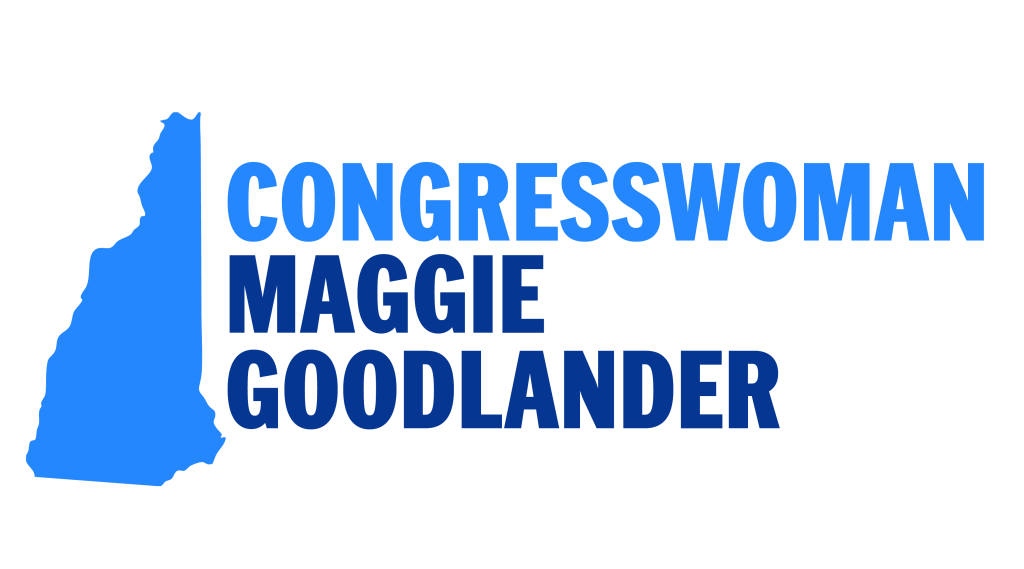Washington, DC – Congresswoman Maggie Goodlander (NH-02), a member of the Small Business Committee, and Congressman Chris Pappas (NH-01), a small business owner, are highlighting the impact President Trump’s widespread, indiscriminate tariffs will have on New Hampshire’s small business community, and how they will raise costs for Granite Staters. They are calling on the administration to reverse course on this harmful policy, which amounts to a national sales tax.
New Hampshire is home to more than 142,500 small businesses, and 99% of all New Hampshire businesses are small businesses. New Hampshire’s small business community employs 50% of all New Hampshire employees, and created nearly 23,000 new jobs in 2024.
The members wrote, “Taxes on imported goods hit small businesses the hardest, with 88 percent of small firms relying on imports for the goods they produce and sell. These companies operate on thinner margins and do not have the sophisticated supply chain management staff that larger firms do, putting them at a competitive disadvantage… The result will spike consumer and input prices across the board, reducing their affordability for everyday Americans and the Main Street businesses they support in the middle of a cost-of-living crisis.”
They continued to highlight the impact these policies would have, including job losses, writing, “In sum, small employers and entrepreneurs, who are the backbone of our economy, cannot operate in such a volatile and unpredictable economic climate. This fear and uncertainty are illustrated by a recent National Federation of Independent Business survey finding that small business uncertainty spiked to the second-highest level since 1973. The disastrous effects of this Administration’s tariff policy will force the closure of these small businesses and the loss of the jobs and livelihoods they sustain.”
Before taking the oath of office, Goodlander served as a Deputy Assistant Attorney General in the Department of Justice, where she took on the corporate monopolies hurting New Hampshire’s small businesses and held them accountable for jacking up prices. Earlier this year, the House passed a slate of Goodlander-backed bipartisan bills to empower New Hampshire small businesses, including the Small Business Advocacy Improvements Act, co-led by Goodlander.
The full text of the letter can be read here or below:
Ambassador Greer, Secretary Bessent, Secretary Lutnick, and Administrator Loeffler:
We write regarding your imposition of widespread, indiscriminate taxes on goods imported from abroad, followed by your suspension of some of those taxes by social media post and daily increases of others. Tariffs were raised to their highest effective rates in over 100 years, including on critical allies such as the European Union, Japan, South Korea, and Australia. Small businesses across nearly every industry will be harmed by the tariffs and the uncertainty surrounding their 90-day pause. Especially concerning are the 145 percent duties on China, the successive daily tax hikes on Chinese imports, the remaining 10 percent tariffs still in place for all imports regardless of origin, and the specific duties in place on items such as aluminum and steel.
Contrary to your beliefs, American importers pay these taxes, and consumers ultimately shoulder the burden. Taxes on imported goods hit small businesses the hardest, with 88 percent of small firms relying on imports for the goods they produce and sell.3 These companies operate on thinner margins and do not have the sophisticated supply chain management staff that larger firms do, putting them at a competitive disadvantage. Small firms also lack leverage in negotiating more favorable terms when they attempt to shift supply chains. The result will spike consumer and input prices across the board, reducing their affordability for everyday Americans and the Main Street businesses they support in the middle of a cost-of-living crisis.
Current trade policy overlooks the very fact that not every ingredient, crop, or product can be produced domestically. While our nation is one of the world’s top exporters of agricultural and food products, with volumes even reaching $196 billion under the previous administration, crops like coffee, tea, cocoa, spices like natural vanilla, and tropical fruit such as bananas and mangoes, are nearly impossible to produce at scale within the United States in the foreseeable future. Many of our nation’s small businesses depend on imported agricultural products to power their payrolls, innovation, and productivity. From Main Street cafes and restaurants, to shippers, truckers, and grocers, millions of businesses rely on and derive significant revenues from import sales. Even America’s own farmers sometimes use spent products in their compost to fertilize crops. Americans cannot shift en masse to domestic alternatives, because for many goods, no large sources exist in the United States.
Additionally, the suddenness of these tariffs, as well as their suspension and increases, ignores how most businesses – no matter their size – operate. Businesses make purchases that take weeks to arrive, meaning that goods that recently left their countries of origin by cargo ship – and are still on the way to America – have had taxes imposed, raised, and paused at least 5 times thus far. When those cargo ships arrive on our shores, it is entirely possible that, on the wrong day, an entrepreneur will have to pay tens of thousands of dollars extra for goods they purchased a month ago – a death sentence for their business. Entrepreneurs, and the customers who buy from them, cannot reasonably anticipate how products will be priced next month, next week, or even tomorrow.
The uncertainty and chaos emanating from these choices, and their timing, create undue anxiety for small employers, workers, and customers alike in nearly every industry. When consumers tighten their belts, small businesses will be the first to experience a decrease in demand, as they shift their spending to larger discount retailers. Main Street America cannot afford yet another recession under President Trump’s watch.
In sum, small employers and entrepreneurs, who are the backbone of our economy, cannot operate in such a volatile and unpredictable economic climate. This fear and uncertainty are illustrated by a recent National Federation of Independent Business survey finding that small business uncertainty spiked to the second-highest level since 1973.12 The disastrous effects of this Administration’s tariff policy will force the closure of these small businesses and the loss of the jobs and livelihoods they sustain.
We strongly urge you to rethink your trade war – and the recession it is causing – and to make good on your campaign promises to lower prices for Americans. Furthermore, we respectfully request that you:
1) Engage with small businesses and their stakeholders.
2) Analyze the effect your trade policies have had on our nation’s small businesses and entrepreneurs, including small farmers and producers.
3) Consider how the current uncertainty around tariff policy negatively impacts how small businesses operate.
4) Take action to protect the interest of small employers, producers, farmers, and entrepreneurs.
5) Collaborate to provide resources for small businesses that can assist them in understanding and navigating your trade policies.
Pursuant to Rule X of the House of Representatives, the Committee on Small Business (Committee) has broad authority to investigate “problems of all types of small business.” The Committee possesses jurisdiction over “assistance to and protection of small businesses.” If you have any questions, please contact the Committee’s Minority staff at (202) 225-4038.
Sincerely,



















